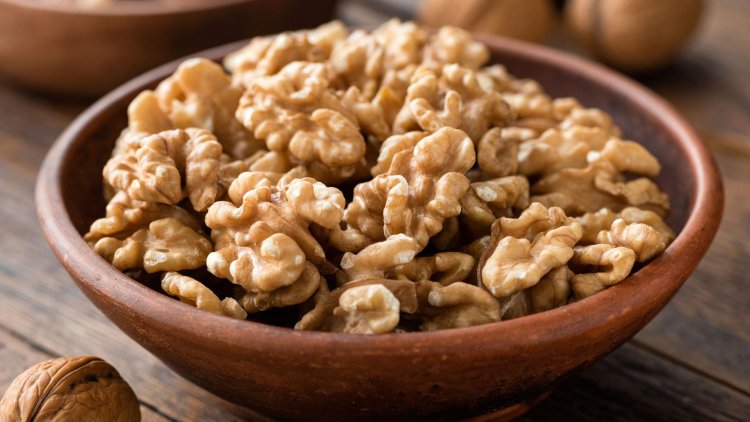The Surprising Health Benefits of Walnuts: The Little Brain-Shaped Nut That Loves Your Heart
Eating healthy often feels like an endless list of no’s no sugar, no salt, no joy. But every now and then, science throws us a delicious curveball. Enter: the humble walnut.

It’s buttery, rich, and brain-shaped for a reason (as it turns out, it might actually help your brain). And if you’re looking for a food that’s both indulgent and beneficial, walnuts might just be the snack your heart and body have been waiting for.
Why Walnuts Keep Winning in the Health Game
For years, researchers have known that nuts are powerful allies against heart disease. They’re cornerstones of the Mediterranean diet, a lifestyle pattern long celebrated for its heart-protective magic.
But walnuts, in particular, seem to deserve a standing ovation. A large 2024 analysis pooling data from 26 trials and over 1,000 participants found that adding walnuts to a regular diet led to measurable improvements in key heart health markers:
Total cholesterol dropped by about 7 mg/dL

LDL (“bad”) cholesterol dropped by 5.5 mg/dL
Triglycerides fell by 4.7 mg/dL
Apolipoprotein B, a blood protein linked to cardiovascular disease, dropped nearly 4 mg/dL
The numbers might sound small, but when compared with a typical Western diet high in red meat, full-fat dairy, and processed foods the differences became much more dramatic.
And here’s the best part: despite being packed with fat, people who ate walnut-rich diets did not gain weight. (Yes, you read that right.)
The Science Behind Their Superpowers
What makes walnuts so unique among nuts? It’s not just their satisfying crunch, it's their fat profile.
Walnuts are particularly rich in polyunsaturated fatty acids (PUFAs), which are known to improve blood lipids and reduce inflammation. They also contain alpha-linolenic acid (ALA) a plant-based omega-3 that helps keep blood vessels flexible and reduces arterial inflammation.
Think of it this way: almonds and cashews are like solid supporting actors, full of monounsaturated fats that support heart health. But walnuts? They’re the leading role with a more complex mix of fatty acids that seem tailor-made for cardiovascular protection.
And emerging studies suggest that walnuts may also support brain health, possibly improving memory and cognitive function over time. A brain-shaped nut that helps your brain? Nature really does have a sense of humor.
Before You Empty the Bag...
As with all good things, moderation matters. Researchers caution that:
The cholesterol-lowering effects, while real, are modest.

There’s no established “ideal dose.” Some studies used around six walnuts a day, others combined them with almonds and hazelnuts.
Correlation doesn’t always mean causation. People who eat walnuts might also have other healthy habits like exercising more, smoking less, or eating better overall.
And of course, walnuts aren’t miracle pills. True wellness comes from the big picture: a nutrient-rich diet, movement, rest, and balance.
The Bottom Line: A Small Snack With Big Potential
If you’re looking to make one small, realistic tweak to your diet, start with walnuts. A handful a day can nudge your cholesterol in the right direction, calm inflammation, and maybe even sharpen your thinking.
They’re proof that not every health choice has to taste like sacrifice. Sometimes, it’s as simple as cracking open something that’s both delicious and good for you.
What's Your Reaction?




















